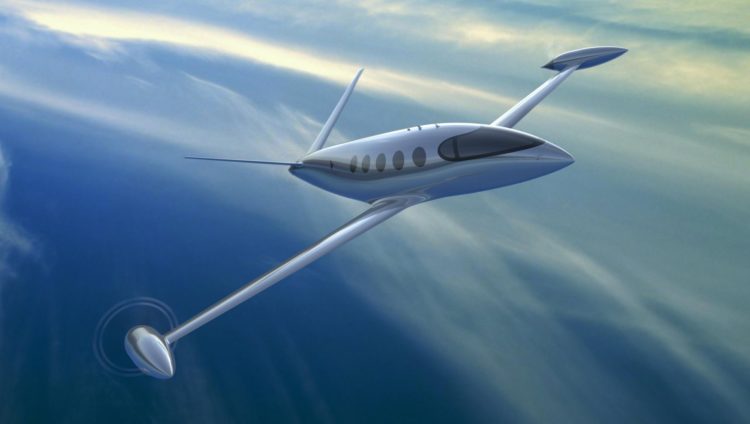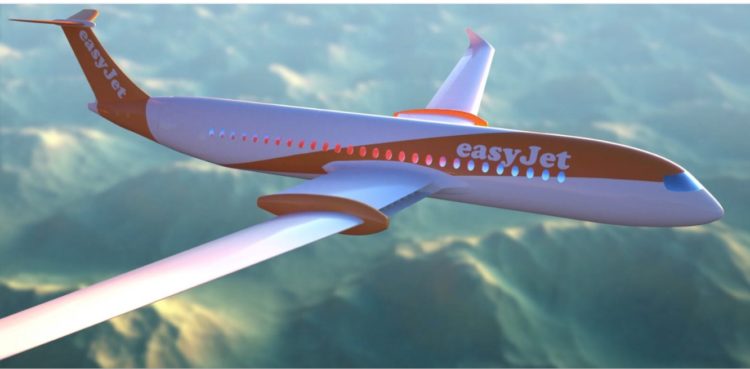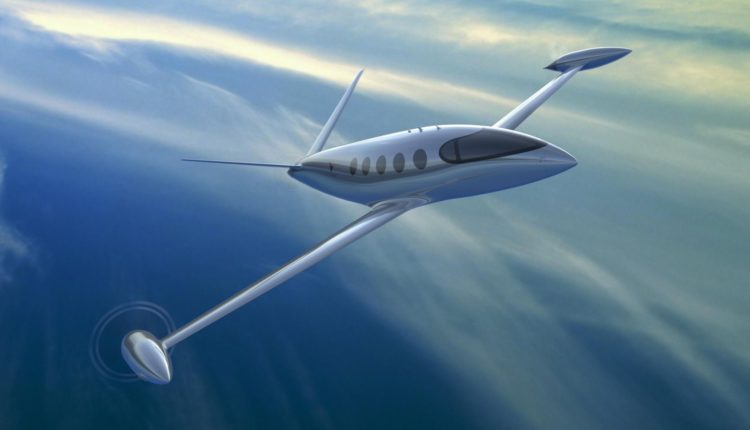Liverpool John Lennon Airport welcomes race to build first commercial all-electric aircraft as ‘Alice’ is unveiled at the Paris Air Show. Tony McDonough reports

A pledge by easyJet to have electric aircraft flying on its short-haul routes by 2030 may be starting to look sluggish by comparison as innovation in the field accelerates.
At last week’s Paris Air Show, Israeli firm Eviation unveiled ‘Alice’ – a prototype of the world’s first all-electric passenger plane, capable of carrying nine passengers more than 1,000km at a speed of 440km/h, and flying at an altitude of 10,000 feet.
US regional airline Cape Air has already placed its first orders with Eviation having agreed to buy a ‘double-digit” number of aircraft, powered by electric motors made by Siemens and magniX.
Alice is powered by three rear-facing pusher-propellers, one in its tail and two counter-rotating props at the wingtips, countering the effects of drag. It also has a flat lower fuselage to aid lift.
Every year across the world there are 2bn tickets sold for flights of less than 500 miles so the potential for short-haul electric aircraft is huge.
The aviation sector is now under massive pressure to improve its energy efficiency, with commercial aircraft seen as a very visible problem in the global battle against carbon emissions and man-made climate change.
Even many supporters of Heathrow’s third runways took a deep breath last week when the sheer scale of the project, and the resultant increase in carbon emissions, was unveiled.
Airlines and airports now know they have to change radically if they want to continue to expand in a world becoming more focused on the reduction of emissions, hence the push for more environmentally-friendly electric aircraft.
Last year easyJet, which operates more than 30 routes out of Liverpool John Lennon Airport revealed it was working with California-based Wright Electric on the project. Wright is developing an electric engine that it intends to test on a nine-seater aircraft in this year after successful flights with a two-seater plane. After the nine-seater the next step would be a 50-seater aircraft.

Wright and easyJet aim to develop a full-size, all-electric commercial aircraft, carrying 120 people and capable of two hours of flying time or 500km, well within range of many of the its short-haul routes.
Chief executive of easyJet, Johan Lundgren, said: “Looking forward, the technological advancements in electric flying are truly exciting and it is moving fast. Electric flying is becoming a reality and we can now foresee a future that is not exclusively dependent on jet fuel.”
One of the technical challenges of all-electric aircraft is the amount of thrust needed to get passenger jets in the air. Wright Electric is developing an electric propulsion system distributed along the wing instead of large engines under each wing.
It will also have a battery that can be easily replaced or swapped and long, thin wings to improve energy efficiency and reduce drag.
Such innovation is being welcome by Liverpool Airport, which is also embarking on its own carbon-reduction programme. A spokesman told LBN: “This (electric aircraft) is another example as to how the aviation industry recognises the need to minimise its impact on the environment, looking at lots of ways to reduce its carbon footprint.
“Here at the airport we are currently planning to install a solar farm which will supply around 20% of the airport’s electricity demand.”

